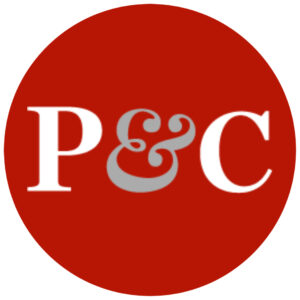Whistleblowers have filed in recent years a number of “qui tam” cases against Medicare Advantage companies alleging risk-adjustment fraud – a practice that drives a major portion of improper payments in the Medicare Advantage program.
Now the Office of Inspector General for the US Department of Health and Human Services has issued a report that indicates the amount of fraud involving chart reviews and health risk assessments (HRAs) by Medicare Advantage insurers is potentially huge.
Over half of the $9.2 billion in risk-adjusted payments the federal government made to Medicare Advantage insurers in 2017 that was based on chart reviews and health-risk assessments went to only 20 companies, the OIG estimates. Yet those 20 companies enrolled only 31% of Medicare Advantage beneficiaries.
In contrast, 134 of the remaining 142 Medicare Advantage companies had a share of risk-adjusted payments resulting from chart reviews and health-risk assessments that was lower than their share of enrolled beneficiaries.
One of the top-earning Medicare Advantage insurers received approximately 40% ($3.7 billion) of the Medicare Advantage payments based on diagnoses submitted solely on chart reviews and health-risk assessments despite enrolling only 22% of patients.
The OIG report recommends that CMS “take additional actions to determine the appropriateness of payments and care for the one MA company that substantially drove risk-adjusted payments from chart reviews and HRAs.”
OIG did not name the company, but the Wall Street Journal reports that the enrollment share matches that of UnitedHealth Group.
Phillips & Cohen is representing a whistleblower in a qui tam case against UnitedHealth Group that alleges risk-adjustment fraud.
In its report, OIG noted in-home health risk assessments generated $2.1 billion in payments to Medicare Advantage companies. Most of those in-home health-risk assessments were conducted by outside vendors that Medicare Advantage companies partnered with or hired, which OIG noted is problematic.
Government agencies have questioned whether Medicare Advantage companies use health-risk assessments primarily as a strategy to increase payments rather than a way to improve the care provided to beneficiaries.
Phillips & Cohen’s whistleblower cases against Medicare Advantage companies
Phillips & Cohen has filed a number of qui tam cases on behalf of whistleblowers alleging risk-adjustment fraud.
- The qui tam lawsuit that Phillips & Cohen filed against UnitedHealth Group and related defendants was one of the first major whistleblower cases alleging the fraudulent use of risk adjustment data by a Medicare Advantage plan run by a major health insurer. The Department of Justice joined the qui tam case in 2017.
- A whistleblower lawsuit alleging that Freedom Health, Optimum Healthcare and affiliates engaged in risk adjustment fraud settled for $32.5 million in 2017. At the time, it was the largest settlement of a False Claims Act case by a Medicare Advantage company.
- This month, DOJ joined a Phillips & Cohen whistleblower lawsuit alleging Independent Health Association, Independent Health Corp., DxID LLC and the former CEO of DxID engaged in risk-adjustment fraud by submitting improper diagnosis codes of their enrollees in Medicare Advantage plans to inflate federal risk-adjustment payments.
How whistleblowers can report Medicare advantage fraud and earn rewards
Individuals with knowledge of Medicare Advantage fraud may file a qui tam lawsuit as allowed under the False Claims Act to stop the fraud. The law provides protection against job retaliation for whistleblowers as well as rewards based on the amount of money recovered as a result of a qui tam case.
After a qui tam lawsuit is filed, the government investigates the allegations to decide whether to join the case.
If funds are recovered for the government, whistleblowers are entitled to 15% to 30% of the recovery as a reward based on numerous factors, including the assistance provided by the whistleblower and their attorneys.
If you are aware of Medicare Advantage fraud and would like to talk to experienced whistleblower lawyers, please contact us for a free, confidential review of your matter.

